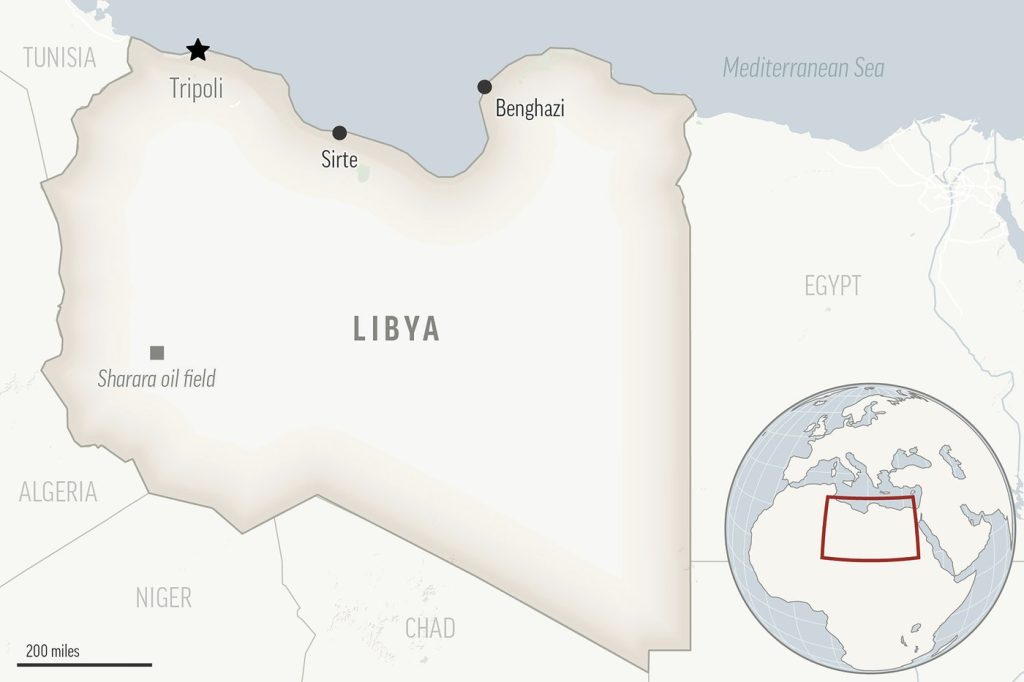CAIRO (AP) In a grim discovery, Libyan authorities reported the uncovering of nearly 50 bodies from two mass graves in the southeastern desert this week, highlighting the ongoing tragedy facing migrants attempting to reach Europe through Libya, a country plagued by chaos and instability.
The first mass grave, containing 19 bodies, was found on Friday in a farm located in the southeastern city of Kufra. The local security directorate confirmed this in a statement, indicating that the bodies have been transferred for autopsy to ascertain the cause of death. Photographs posted on social media showed police officers and medics engaged in the delicate task of excavating the graves, revealing bodies wrapped in blankets.
Furthermore, a separate mass grave with at least 30 bodies was discovered in Kufra following a raid on a human trafficking center. According to Mohamed al-Fadeil, the head of the security chamber in Kufra, survivors reported that nearly 70 individuals may have been buried in this particular grave, prompting ongoing searches in the surrounding area by authorities.
Mass graves of migrants have unfortunately become a recurring theme in Libya. In the previous year, at least 65 migrants were unearthed from a mass grave in the Shuayrif region, approximately 350 kilometers (220 miles) south of Tripoli, the Libyan capital. Libya has established itself as the primary transit point for migrants hailing from various parts of Africa and the Middle East, all seeking passage to Europe.
The turmoil in Libya began after the NATO-backed uprising that resulted in the overthrow and death of long-time leader Moammar Gadhafi in 2011. Since then, the oil-rich nation has experienced a prolonged period of conflict, with rival governments ruling in eastern and western regions, supported by various militias and foreign powers.
Human traffickers have thrived amid more than a decade of instability, smuggling migrants across Libya's borders with six neighboring countries: Chad, Niger, Sudan, Egypt, Algeria, and Tunisia. Upon reaching the coast, these traffickers often cram desperate migrants into unsafe rubber boats and other makeshift vessels, sending them on perilous journeys through the treacherous Central Mediterranean Sea.
Over the years, numerous rights groups and United Nations agencies have documented the systemic abuse faced by migrants in Libya. This includes reports of forced labor, physical beatings, sexual assaults, and torture. Such abuses frequently occur as traffickers extort money from the migrants' families, holding them hostage until payments are made to allow their departure from Libya.
Additionally, migrants who are intercepted and returned to Libya—among them women and children—often find themselves imprisoned in government-operated detention centers, enduring further abuses including torture, sexual violence, and extortion, according to testimonies from human rights organizations and UN experts.
The continuous plight of migrants in Libya underscores the urgent need for systemic change and effective measures to combat human trafficking and protect vulnerable populations. With the ongoing instability and lack of governance in the region, the risks for those seeking a better life in Europe remain perilously high.










